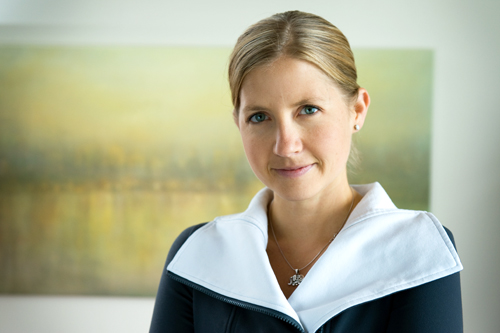
Lisa Pitman is the MacGyver of vegan cooking. No eggs? No problem. She routinely cooks without eggs using a variety of plant-based substitutes. When she became a vegan at the age of six, she was probably too young to understand the ethical, environmental and health benefits of an animal-free lifestyle.
She is now a vegan food advocate with her own website (www.veganculinarycrusade.com) and author of an e-cookbook on vegan recipes. “It has changed every aspect of my life,” says Pitman, BA ’01, adding that veganism has given her more energy for her busy lifestyle, which includes working full-time, volunteering and training for half-marathons.
Veganism was an easy choice for Pitman since her body can’t process animal protein, but she says cutting animal-based foods from your diet is an easy way to improve and, in some cases, reverse serious health problems such as obesity, heart disease and diabetes. She points to her own mother, Teresa Pitman, a writer in communications and public affairs at U of G, who reversed her Type 2 diabetes by switching to a vegan diet.
If you’re thinking of becoming a vegan, don’t go cold turkey and cut out all animal-based foods. Instead, Pitman recommends that you boost your intake of the vegan foods you already enjoy such as fruits, vegetables and pasta. Start each meal by eating those foods first; that way you’ll fill up on plants instead of eggs, meat and dairy. “Rather than thinking about what you’re taking out,” says Pitman, “put in a lot more vegan stuff, because you’ll get tons of benefits from that anyway. It will shift the number of calories you’re consuming that come from plants rather than animals.”
Getting enough vitamins, minerals and protein is easy for vegans, she adds, because their diet is already based on nutrient-rich foods, especially green leafy vegetables. Kale, which she describes as “one of the healthiest foods on the planet,” is also one of her favourites. “Kale salad is my favourite lunch; that’s what I’m having today.”
If you think having a bowl of leaves for lunch sounds boring, think again. Pitman spices up her kale with dressing and sprinkles it with almonds. Vegans get the same nutrients from plants that non-vegans get from animals, she says, because animals also get their nutrients from plants.
Veganism also has ethical implications for Pitman, who has a master’s degree in social work and now works for the Government of Ontario in social policy. “As an individual, I really want to do my best to not cause harm in the world,” she says. “Veganism is something really simple that you can do to change the way you are participating in the harm of other creatures and the harm of our world.”
Eating a salad with hummus is just as easy as eating it with grated cheese, she says, but that small change can have a big impact. Choosing vegan foods on a daily basis adds up, considering that most people eat three to five times per day.
Pitman believes the environmental impact of eating plant-based foods is much smaller than eating animal products, because less energy and water are needed to harvest fruits and vegetables than to raise livestock. “We’re spending so much on animals to kill them,” she says. “If we just ate what they ate and took them out of the equation, we’d be able to feed more of the planet; we’d have more land and we’d have more clean water.”
She says veganism has also made her a better global citizen by making her question non-dietary choices such as the clothes she wears and the cleaning products she uses. She has also taken her vegan message worldwide, travelling for three months last year to India, Thailand, Bali, Australia, New Zealand and Hawaii, where she led workshops on vegan cooking and raw-food cuisine.
Although Pitman calls herself a vegan activist, she wants people to make their own decisions about what they eat. “I want everybody to live according to their own values,” she says. “I’ve seen so many people change their lives around me, but they’re the ones making the change.”
It was this focus on how our decisions affect each other and the planet that inspired Pitman to pursue a career in social work. She studied psychology at U of G not just because it would be a good foundation for her future career, but because U of G offered vegan food options on campus. As a student, she felt a sense of community with other vegan students who shared her social consciousness.
That awareness carried into her current role in the Ontario government, which involves social policy research on child welfare and youth issues. “What I like most is having the opportunity to try and solve a puzzle,” says Pitman. “We have all of these incredibly complicated issues in front of us in our province and our community. How do we start to put those pieces in the right order?”